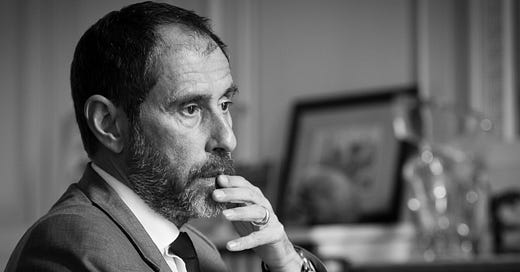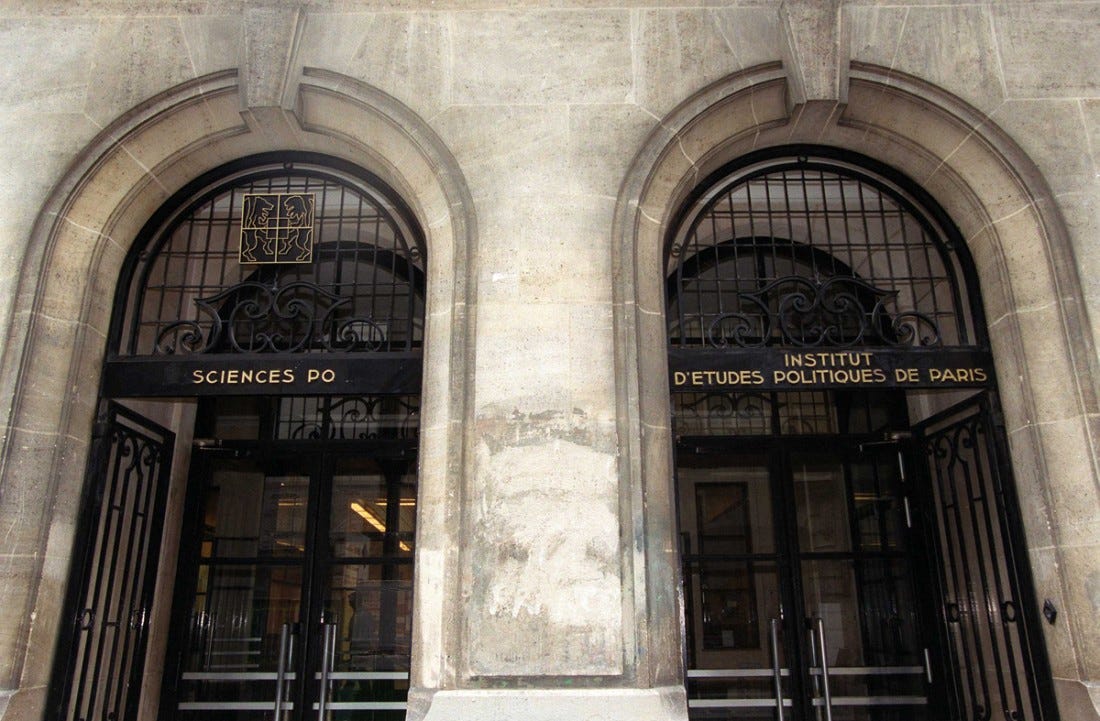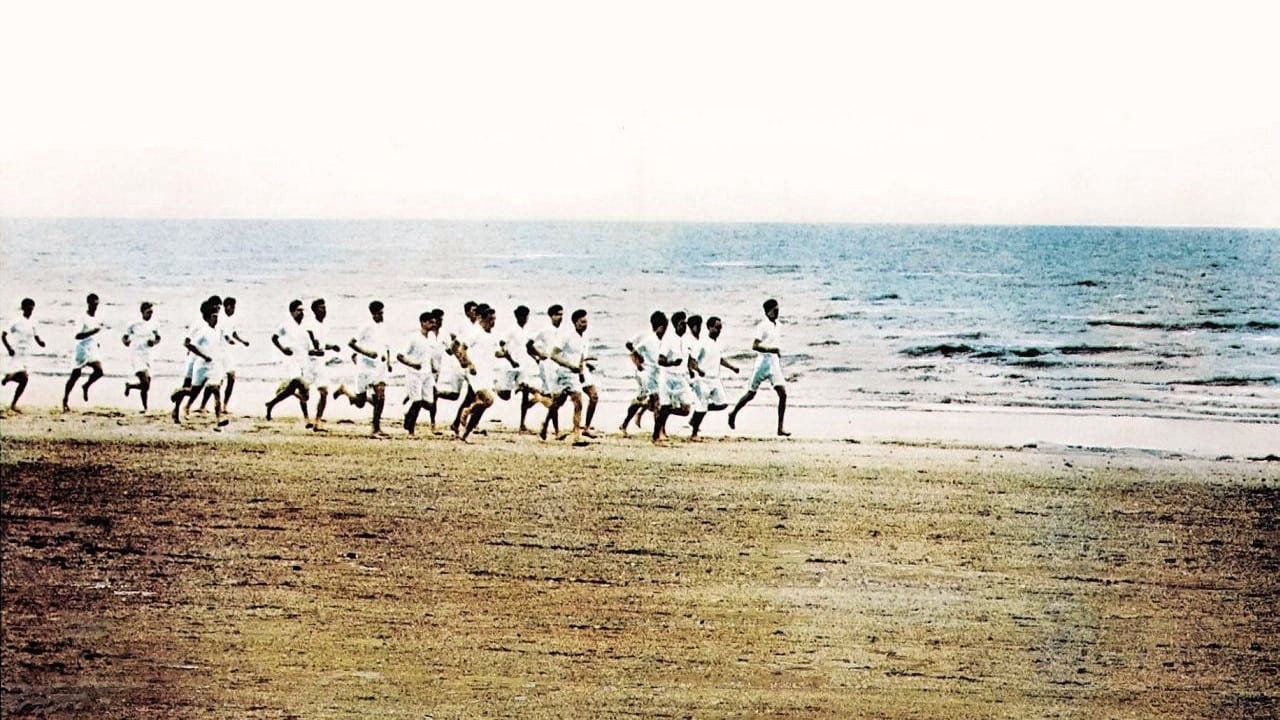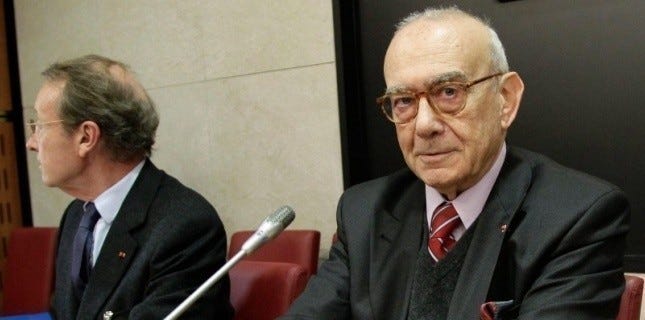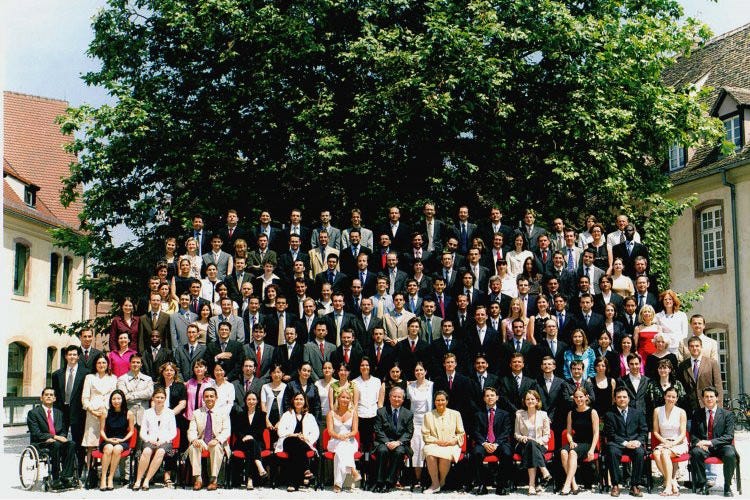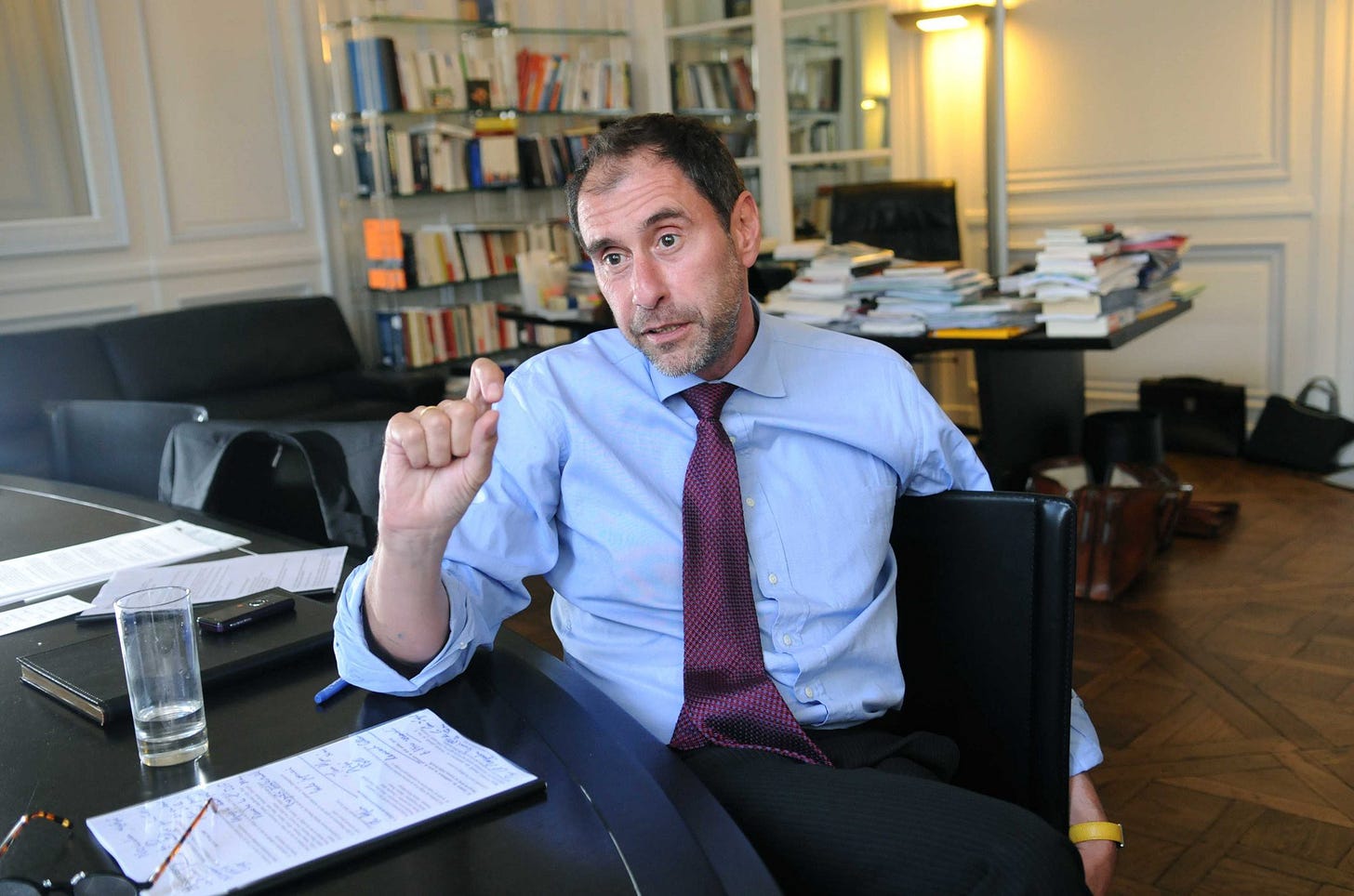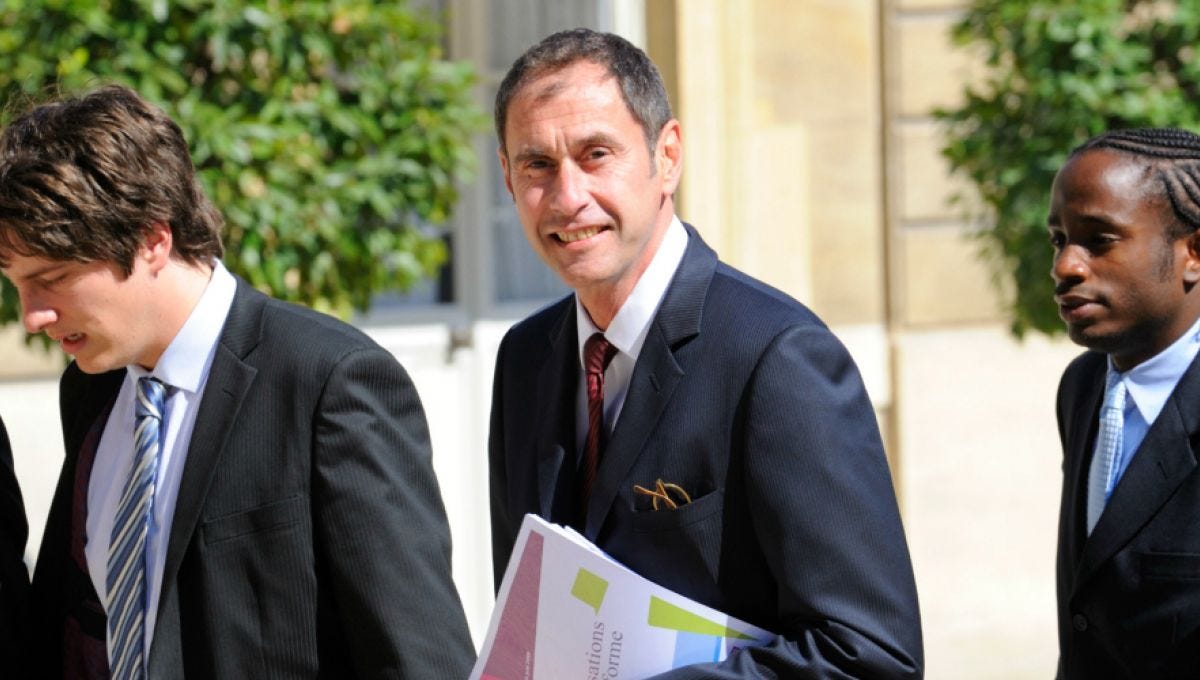This is the translation of a personal essay I wrote back in April 2015 about a controversial biography of Richard Descoings, longtime director of Institut d’études politiques de Paris (better known as Sciences Po), where I was a student from 2000 to 2002.
Sciences Po is a uniquely French institution, where a very large part of the non-engineering elite in politics, government, business, journalism, and academia are trained. It’s a bit as if you merged Oxford University with the London School of Economics and located it right at the center of London, just a few yards away from Whitehall.
Descoings had a meteoric career in the top spheres of the French civil service and became the director of Sciences Po, one of the most central and influential positions in the French power circles, at the young age of 38. He then implemented radical changes in various aspects of how Sciences Po was organized and selected its students. He became a sought-after expert on reforming higher education and the school system, but was also mired in various controversies and power plays that significantly hurt his image. Overall, he was always a controversial figure, with many people hating him, while others (like me) admired and respected him a great deal.
Richard Descoings died in unknown circumstances in a hotel room in New York in 2012, at the age of 54. Many lurid details were then revealed about his character and his private life, notably in the book I wrote about in this essay (a biography by journalist Raphaëlle Bacqué), triggering widespread controversy and quite an emotional outpouring from alumni who had bonded with him in a unique way. Bear in mind that this was published in 2015—before Brexit, before Trump, before Macron, before the pandemic: a very different world from today.
I just finished the (short) tell-all biography of Richard Descoings written by Raphaëlle Bacqué, a journalist with Le Monde. Critics love to attack this kind of book, using the pretexts of voyeurism and invasion of privacy. I’ll do exactly the opposite: it’s a book that I adored, and which provoked a great deal of emotion while reading it.
I started as a student at Sciences Po in 2000, in a program that today is classified as a master’s degree. I was 23 years old. As an adolescent, studying in Paris was a dream: I had gone to middle school in Le Havre, high school and undergraduate in Nantes, then studied engineering in Brest. I had had enough of life in “la province”. Sciences Po was, for me, an extraordinary opportunity to “monter à Paris”, to pull myself up and discover a critical part of what makes France what it is, a large and centralized country: its elites, the training they receive, their social codes, their levers of power.
I started exploring Paris… and found out that the life I had dreamed about didn’t exist anymore. Over the course of 10 years, I saw the last vestiges of a world disappear: the Latin Quarter full of students, the PUF bookstore at Place de la Sorbonne, the École nationale d’administration (ENA) on rue de l’Université, the tiny arthouse cinemas and theatres. This Paris that had traditionally formed its class of elites, told about in books and depicted to the last detail in the films of Benoît Jacquot and Desplechin, doesn’t exist anymore. The Latin Quarter is full of tourists. The streets around Sciences Po are full of luxury boutiques. The public interest is no longer particularly interesting to the brightest students. France is stepping off the pedestal, and its elites are going with her.
Richard Descoings was one of the people I found in my new life in Paris. I’d discovered right before my arrival that the director of Sciences Po was no longer Alain Lancelot, who I had seen a bit via the media, but instead his young successor, a member of the State Council (one of the French famous grand corps). On the first day of school, I’d listened closely to his speech greeting the new students. I only remember a few details: his youth, his long legs, his mannered accent, and most importantly that he had structured his speech into two sections, each with two subsections—an early lesson to all of us on the importance of form.
Under Descoings’s direction, Sciences Po would be exactly the opposite of what I had expected. I was looking for a certificate of conformity that would let me access the country’s highest spheres. Instead I discovered an institution that was in the middle of a revolutionary storm, where changes were underway that showed us that the world was changing, and that nothing could be taken for granted anymore. It was a radical moment, and yet it was self-evident. That’s how Richard Descoings appeared to me: he wasn’t there to greet us as the guardian of the temple, but rather as the leader of a revolution.
Busy as I was getting ready for the ENA entrance exam, I wasn’t a particularly engaged student. But it was from inside Sciences Po that I lived most of the critical episodes described in Raphaëlle Bacqué’s book—without necessarily realizing the gravity of what was going on. Everyone who was there at the time remembers the vicious battles around Descoings’s equal opportunity program, particularly the violent attacks by right-wing student union UNI against Richard Descoings and his team.
Another memory is that of the two trips taken by graduating classes, one to London and the other to Berlin—and the rumors that then circulated about the director drunk and dancing with his shirt off in the middle of the throng of students. Graduating in 2002, I could have been in Berlin to see it all from up close, but my priority was entering the ENA, and every day counted in preparing for the exam.
Finally, I remember Richard Descoings’s frequent changes in appearance and mood. Even for someone like me who only saw him from afar, he never really was the same: I knew nothing, of course, about the personal crises that he was confronting, but all of the signals were there.
In any case, none of that was of any particular import at the time. What really counted was the feeling of being at the center of the world, or at any rate at the center of the nation: Sciences Po brought together the old and the new, the revolution and the reaction. Fascinated as I was by the old, I was one of the last generations to listen closely to an inaugural talk by BNP Paribas Chairman & CEO (and member of the Inspection générale des finances, another grand corps) Michel Pébereau (pictured above on the left), or to follow joyfully in a methodology course by Raymond Aron’s favorite disciple Jean-Claude Casanova (above on the right) dedicated to Tocqueville’s second volume of Democracy in America.
But invited by Richard Descoings to see the world in a different way, I also was an unabashed admirer of how he pushed an aspiration for a greater diversity within the elite, the way that he outstripped all ideas of public service, how he saw the internationalization of the market for higher education. During those two years spent at Sciences Po as a student, I discovered both the power of the institution and the symbolic & practical effects of its transformation—not only for the institution itself, but for the entire country. Changing Sciences Po meant changing France as a whole.
On the whole, it gave a particular tint to my wanting to join the government. Serving the public wasn’t, in the end (and contrary to what I had initially believed), about preserving the heritage and reproducing the same thing over and over. It was the opposite, in the vein taken by Descoings, meant to question everything and change everything—and, like a great entrepreneur, to inspire that change. Much more stimulating than what I expected! I think there were numerous students who came to believe then that participating in public service meant joining the government to orchestrate a revolution from the inside. The torments and setbacks I experienced later were then only more painful—we aren’t governed by revolutionaries, far from it!
Stepping back a bit, we could have been upset with Richard Descoings for letting us go along believing that it was all about the revolution. 15 years later, it’s hard to find anything in the public sphere that matches the kind of changes that he pushed forward at Sciences Po. Unlike the impression that was formed there, Richard Descoings did not represent our top civil servants—instead, he was the exception that proves the rule. The dominating mentality in our elites is not that remarkable “deviance” that Descoings proudly claimed for himself, but rather conformity, timidity, and an appalling lack of imagination. Nothing changes in this country, at least not at the top, and Richard Descoings’s achievements were likely nothing more, in our political and administrative history, than a spectacular parentheses.
After graduating in 2002 and then going on to the ENA (above is my class photo in 2006), I would have many occasions later to return to Sciences Po. As a young inspecteur des finances, I taught public finance, social policy, and American politics (with my wife Laetitia Vitaud) there. More recently, I started teaching business strategy and the history of technological revolutions as well. Many of my friends who work at Sciences Po have told me about the later adventures of Richard Descoings, sometimes in highly critical terms, but most often with the same admiration that I felt at the time when faced with that drive to change everything, that determination when faced with an obstacle.
I only spoke with Richard Descoings face-to-face once. Demoralized after a long mission with the Inspection générale des finances about public policy in higher ed and research, I had sent him a note about a project whose aim was to change the entire system by starting with the production of statistical data.
He met with me (as always do those who are part of the grands corps…) and spoke with a great deal of tact, without trying to dissuade me but clearly describing the difficulties of such a task. He was convinced by the opportunity presented by the project (he had the same goal, anyway, as the idea wasn’t particularly original), but he believed that the French elite would go silent when it came to financing such an effort. We aren’t in the US, where rich entrepreneurs build up their fortunes far from the country’s elite circles, and then try to buy the Nation’s recognition by funding foundations. What good was it, for a member of the French elite, to make such a sacrifice when they already have everything in addition to money: diplomas, recognition, influence? I left Descoings’s office discouraged, but grateful.
There were two things that moved me deeply in Raphaëlle Bacqué’s book.
First, the suffering endured by those who want to change everything: Richard Descoings was like a great entrepreneur who changes the world—a visionary, but a tortured one, with a complicated life. The second is her explanation for what drove Richard Descoings. I knew a good deal about him, but I didn’t know that he was one of the first militants in the French AIDES association. And I think everything was born there. Given the urgency of their fight against death, the first activists in the AIDS fight placed radicality at the center of their actions. To fight against an entire system, to overcome fear and indifference, to get an answer and to actually get treatment for those who were sick, they had to be radical, to make no concessions, to impose their will thanks to better organization and an iron will.
I have a vague memory from the 90s of watching a documentary on TV about the fight against AIDS and being struck by the brief moments when French activist Didier Lestrade recalled the creation of Act Up-Paris. He expressed an absolute radicality, a level of intransigence that shocked me at the time. Much later, I understood that radicality thanks to a fascinating book where Didier, who I now admire a great deal, told (together with Dr. Gilles Pialoux) about 30 years of fighting AIDS. I’m sure that Didier would leap up to be compared to Richard Descoings, but there seemed to be the same radicality in the effort Descoings brought to changing everything at Sciences Po. To forge that unique personality, there was the homosexuality, compassion for the early victims of AIDS, early efforts together with Daniel Defert (the founder of AIDES, and partner to the late Michel Foucault), the urgency of facing death.
With his remarkable path, Richard Descoings rose above and remains, in my eyes, the only great reformer in the French public sphere during the early 21st century. All others, without exception, have failed or never even tried. Circumstances allowed for Richard Descoings to accomplish what he did on favorable ground: despite its appearances, Sciences Po is an institution whose founding mission is precisely to correct the failures of the elites, and to organize the new rise of the Nation in times of crisis. (On that, read about the legacy of its founding father Émile Boutmy.)
Because it was Richard Descoings and because it was Sciences Po, what happened could only inspire those who, like me, were lucky enough to live it from the inside. But living it is one thing, understanding it is another. Many people, the insiders, already knew all the details. I wanted to thank Raphaëlle Bacqué for having written this book for all of us who didn’t.
You can follow up by reading those previous editions:
France, As Revealed by its Elite (July 2020)
Shutting Down ENA & Government in the Entrepreneurial Age (me, European Straits, April 2019)
French “grandes écoles” & Progress Studies (April 2019)
Macron Is About to Win (April 2017)
French Engineers and Entrepreneurship: It’s Complicated (April 2016)
From Normandy, France 🇫🇷
Nicolas

